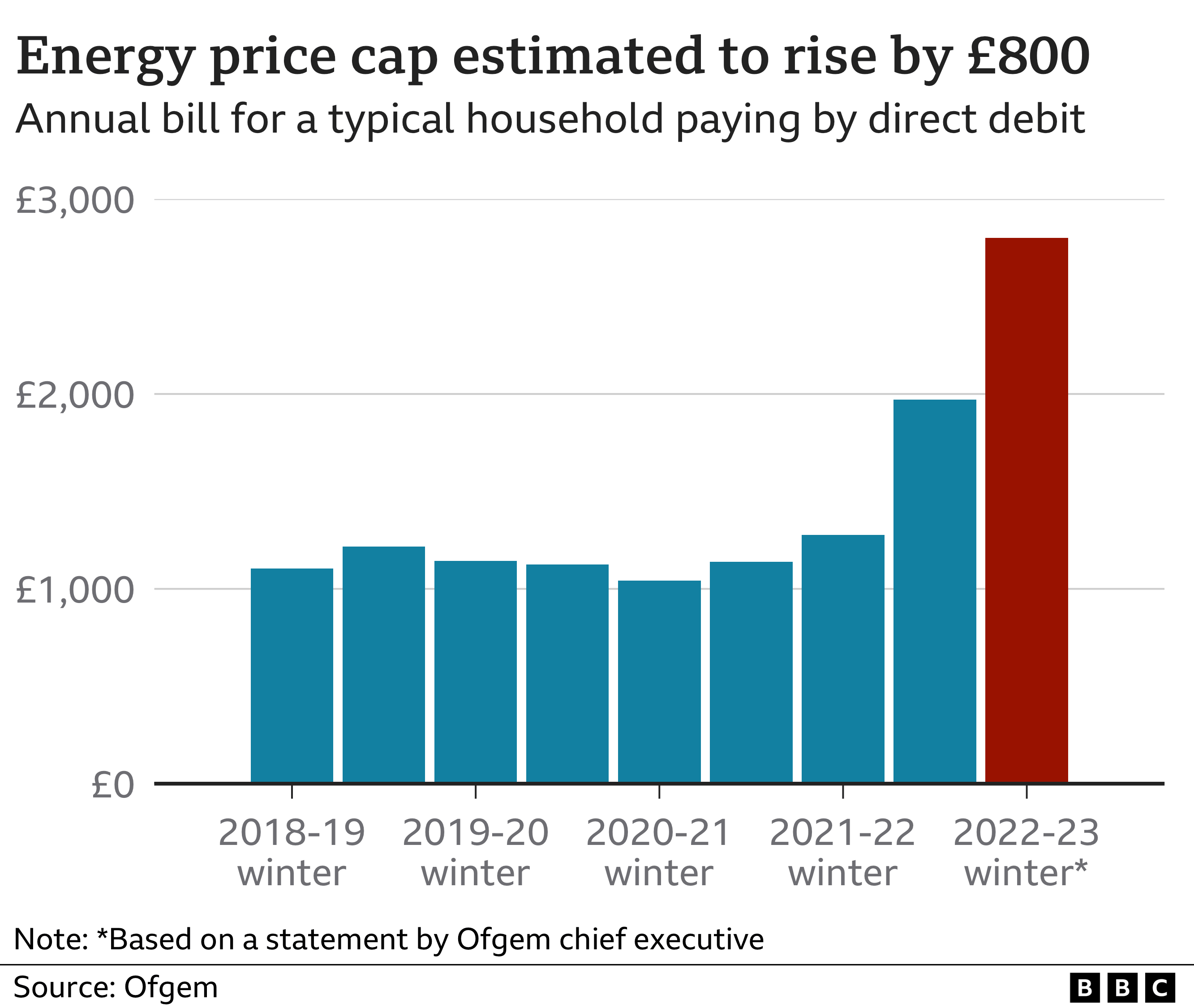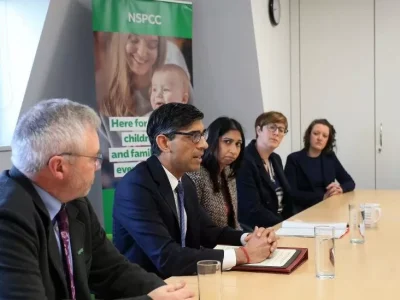The typical household energy bill is set to rise by about £800 a year in October, the energy regulator warns. Ofgem boss Jonathan Brearley said the energy price cap, which limits how much providers can raise prices, is expected to increase to £2,800 a year, due to continued volatility in gas prices. Mr Brearley said the price rises were a “once in a generation event not seen since the oil crisis in the 1970s”. He also said the number of people in fuel poverty may double to 12 million. A household is in fuel poverty when it has to spend 10% or more of its disposable income on energy. The energy price cap already rose sharply in April to £1,971, meaning that homes using a typical amount of gas and electricity are now paying an extra £700 per year on average.
Mr Brearley told the business select committee of MPs that Ofgem was only partway through reviewing prices ahead of setting the next cap in October, but added: “We are expecting a price cap in the region of £2,800.” It means the typical household bill could rise by £800 per year.
Ofgem’s price cap covers England Wales and Scotland. Northern Ireland does not have a price cap, but households have also been witnessing sharp price rises. Mr Brearley said that conditions in the global gas market had “worsened” following Russia’s invasion of Ukraine, which has led to concerns about potential supply issues.
‘Interrupted supplies’
He warned that the price cap could rise beyond £2,800 if Russia – one of the world’s largest exporters of natural gas – decided to disrupt supplies. “We are really managing between two versions of events,” he said. “One where the price falls back down to where it was before, for example, if there’s peace in Ukraine, but one where prices could go even further if we were to see, for example, a disruptive interruption of gas from Russia.”


We are all getting used to bill shocks when it comes to paying for gas and electricity – but this could be the biggest of all. Regulators do not usually give such early indications of the costs to come, which makes the seriousness of the situation all the more obvious. Some 23 million households have their domestic energy bill governed by the price cap. In April, they typically started paying £700 a year more. In October, according to Mr Brearley, it could be a further annual rise of £800. The trouble is, the old way of tackling this as a billpayer was to shop around for a better tariff. That option is no longer available. Analysts say the average price of the cheapest 10 fixed tariffs on the market is £3,685 a year – clearly a poor financial choice. So that leaves people to budget and use savings as best they can, and leaves ministers under even greater pressure to offer more support, especially during the colder, darker, more expensive months ahead.
Later on Tuesday, the Business Secretary Kwasi Kwarteng told MPs people will have to “wait and see what’s forthcoming” from the chancellor and the prime minister on further help on energy bills as he said economic growth was the “time-honoured way” to help people.
Mr Kwarteng said the government had put forward £9.1bn in support for energy bills, including council tax and energy bill rebates, and an extension of the Warm Home Discount. He added that the government had been waiting to see where gas prices were heading before making a decision on further assistance. “What we see now isn’t the full picture. Both the prime minister and the chancellor say there is more to do, and we have to see what is forthcoming”, Mr Kwarteng told the committee.
![]()





